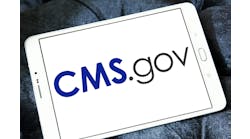Survey: Only 31 Percent of Healthcare Providers Use EHR Analytics Capabilities
A survey by the Medical Group Management Association (MGMA) found that only one-third of healthcare providers are utilizing all analytics tools and capabilities offered in their electronic health records (EHRs).
In an April 24 MGMA Stat poll, respondents were relatively split on how much they analyze their HER data. Thirty-one percent said that they use their EHR analytics capabilities, while another 31 percent said they use some combination of their EHR analytic capabilities and an external vendor. Twenty-two percent of respondents said they utilize some of the analytics capabilities and tools offered in their EHR and 11 percent reported that they don’t analyze their EHR data at all. Five percent of respondents use an external vendor to analyze data from the EHR.
In a blog post, Derek Kosiorek, principal consultant, Health Care Consulting Group, MGMA, noted that as more healthcare organizations move to data-driven, value-based care, “the ability to leverage the information collected in an EHR becomes vital to the very sustainability of a medical practice.”
“Yet,” Kosiorek wrote, “many practices do not have the resources to mine the data and organize it in ways to create new insights from the clinical, administrative and financial information being captured daily. Even if your practice has the staff with the knowledge and time to create reports, the system often requires an add-on product sold by the vendor or an outside product or service to analyze your data.”
Kosiorek asserts that the EHR/analytics world is improving and “will soon live up to the promise that brought us into the electronic age.”
“Soon, systems will aggregate the data available from multiple settings, such as emergency department, outpatient and nursing home facilities. It will inform the caregiver about implications brought by regional data for similar patients, the level of interest and ability to engage in her/his own care and latest clinical trials,” he wrote.

